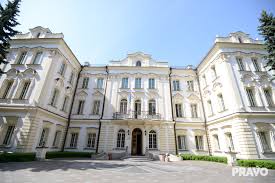Grand Chamber of the Supreme Court of Ukraine: Change in the Price of the Goods in the Purchase Agreement and Restrictions on Price Increases
On January 24, 2024, the Grand Chamber of the Supreme Court of Ukraine adopted a resolution in case No. 922/2321/22, which establishes important legal norms regarding the possibility of changing the price of goods in purchase contracts. This decision has a significant impact on public procurement, as it defines limitations on the increase in the price of the goods that were the subject of procurement and emphasizes the importance of compliance with the conditions of transparency and efficiency in public procurement.
Circumstances of the Case
The essence of the case was that the prosecutor filed a lawsuit against the energy supplier with the demand to invalidate the additional agreements to the contract for the supply of electricity concluded as a result of public procurement on the Prozorro website. The plaintiff also demanded the recovery of unjustifiably received funds. The prosecutor argued his claim that due to the conclusion of additional agreements during April-October 2021, the real cost of 1 kWh of electricity increased by UAH 1.48 (that is, by 92%), and the volume decreased by 355,154.9531 kWh ( i.e. by 46.57%). This, according to him, led to a complete leveling of the results of the tender procurement.
The commercial court of the first instance and the appellate commercial court refused to satisfy the claims, referring to the absence of violations of the requirements of Article 41 of the Law of Ukraine "On Public Procurement" when concluding additional agreements.
Conclusions of the Supreme Court
The Grand Chamber of the Supreme Court canceled the decisions of the previous courts and made a new decision on the satisfaction of the claims.The main points of the resolution of the Supreme Council of the Supreme Court include the following provisions:
The Price of the Goods as an Essential Condition of the Contract: The price of the goods is an essential condition of the purchase contract, and its change after the seller has fulfilled the obligations to transfer the goods to the ownership of the buyer is not allowed.
Price Change before Handover of the Goods: An increase in the price of the goods before handing over to the buyer is possible in the event of an increase in the price of such goods on the market, if the parties have agreed on such a possibility. If there is no agreement, a price change is possible only if there is a significant change in circumstances in accordance with Art. 652 of the Civil Code of Ukraine (CCU).
Limitations on Price Increases: In any case, the price per product unit cannot be increased by more than 10% from the initial price specified in the contract based on the results of the procurement procedure, regardless of the number and terms of price changes during the contract. You may the following articles will be of interest: lawyer's consultation lawyer's consultation analysis of documents legal analysis of the situation written consultation verification of documents by a lawyer lawyers documents lawyer's help online lawyer online legal opinion legal opinion of a lawyer lawyer online
Role of Public Procurement
The Grand Chamber of the Supreme Court emphasized that the purpose of the Law of Ukraine "On Public Procurement" is to ensure efficient and transparent procurement, create a competitive environment, prevent corruption and develop fair competition.Allowing repeated significant increases in the price of the product after the conclusion of the contract would mean violating these principles and allowing sellers to offer unrealistically low prices at the time of the tender, and then demand higher prices.
Conclusion
The decision of the Grand Chamber of the Supreme Court of Ukraine in case No. 922/2321/22 establishes important legal norms regarding changes in the price of goods in purchase contracts. It emphasizes the need to observe the principles of transparency, efficiency and fair competition in public procurement. Restrictions on price increases up to 10% of the initial cost of the product protect the interests of the state and society, preventing abuses in the procurement process.

































